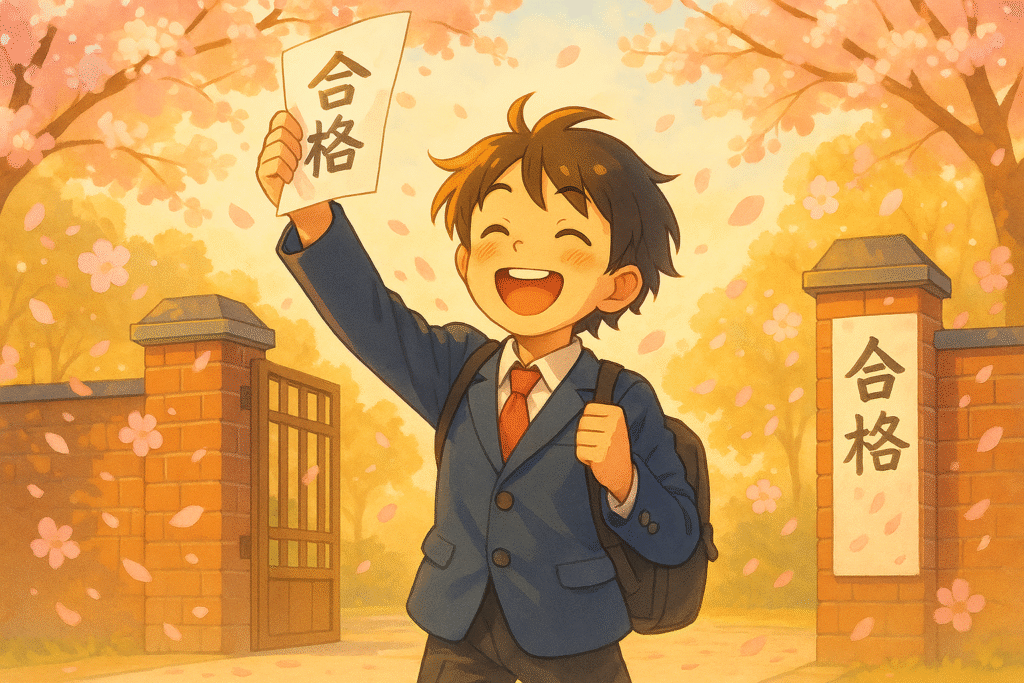Wishing someone a peaceful night is a universal gesture of care across cultures. In Japanese, the phrase “おやすみなさい” (oyasuminasai) carries this warm sentiment with an added touch of respect and politeness characteristic of Japanese communication. Whether you’re planning a trip to Japan, speaking with Japanese friends, or simply expanding your language skills, mastering different ways to say goodnight in Japanese will enhance your cultural fluency and personal connections.
The Meaning and Cultural Significance of Oyasuminasai
“おやすみなさい” (oyasuminasai) is the standard formal way to say goodnight in Japanese. This beautiful expression combines several elements that reveal much about Japanese language and culture:
- お (o): A polite prefix that elevates the formality of the phrase
- やすみ (yasumi): Derived from the verb “yasumu,” meaning “to rest” or “to take a break”
- なさい (nasai): A respectful imperative ending that transforms the expression into a gentle wish or suggestion
Together, these components create a phrase that literally translates to “please rest” but functions as the perfect goodnight wish in Japanese society, where showing appropriate levels of respect is essential in daily interactions.
Oyasumi vs. Oyasuminasai: Choosing the Right Level of Formality
Japanese language is deeply influenced by social hierarchy and relationship contexts. Knowing when to use different variations of goodnight expressions is crucial for effective communication:
おやすみなさい (Oyasuminasai)
This formal version is appropriate for:
- Speaking with superiors, teachers, or elders
- Addressing customers or clients in professional settings
- Conversations with people you don’t know well
- Formal family situations (like speaking to in-laws)
おやすみ (Oyasumi)
This casual variation works well when:
- Talking with close friends
- Speaking to family members
- Addressing younger people or children
- Texting or messaging people you’re comfortable with
The difference between these two expressions perfectly illustrates the Japanese concept of 敬語 (keigo), the honorific speech system that reflects social relationships through language. As explained in our article on Japanese honorifics like “kun”, these distinctions help navigate social dynamics in Japanese culture.
Beyond Oyasuminasai: Other Ways to Say Goodnight in Japanese
While “おやすみなさい” is the standard goodnight greeting, Japanese offers several alternatives that add nuance to your nighttime farewells:
1. いい夢見てね (Ii yume mite ne)
- Meaning: “Have sweet dreams”
- Usage: Intimate and warm, perfect for close friends, family members, or romantic partners
- Example: いい夢見てね、また明日 (Ii yume mite ne, mata ashita) – “Sweet dreams, see you tomorrow”
Want to explore Japan’s culture?
Discover Japan’s rich culture, traditions, and hidden gems with our expertly crafted guides. Get insider tips on travel, food, and history. All for free!
2. ぐっすり休んでね (Gussuri yasunde ne)
- Meaning: “Sleep well” or “Rest deeply”
- Usage: A caring expression used among family and friends
- Example: 明日は早いから、ぐっすり休んでね (Ashita wa hayai kara, gussuri yasunde ne) – “Since tomorrow starts early, please sleep well”
3. お疲れ様でした (Otsukaresama deshita)
- Meaning: “Thank you for your hard work”
- Usage: Often used at the end of a workday or after completing a task together
- Example: 今日も一日お疲れ様でした、おやすみなさい (Kyou mo ichinichi otsukaresama deshita, oyasuminasai) – “Thank you for your hard work today, goodnight”
These variations demonstrate how Japanese language often intertwines well-wishing with acknowledgment of effort and care for others’ wellbeing, similar to how “yokoso” extends beyond a simple welcome, as discussed in our article on yokoso meaning.
How to Respond to Goodnight Wishes in Japanese
When someone wishes you goodnight in Japanese, responding appropriately maintains the flow of polite conversation:
- If someone says “おやすみなさい,” you can simply reply with “おやすみなさい” in return
- For a casual “おやすみ,” respond with “おやすみ” or add “ありがとう、おやすみ” (Arigatou, oyasumi) to express gratitude
- To add extra warmth: “あなたも良い夜を” (Anata mo yoi yoru wo) – “You have a good night too”
Learning these response patterns helps build natural conversation skills, much like understanding the cultural nuances behind expressions such as “naisu” in Japanese, which we’ve explored in another article.
Real-Life Japanese Goodnight Conversations
To help you sound more natural, here are some authentic conversation examples:
Formal Setting (Workplace)
Colleague A: お先に失礼します。おやすみなさい、田中さん (Osaki ni shitsurei shimasu. Oyasuminasai, Tanaka-san) “I’m leaving now. Goodnight, Mr. Tanaka.”
Colleague B: はい、おやすみなさい。明日もよろしくお願いします (Hai, oyasuminasai. Ashita mo yoroshiku onegaishimasu) “Yes, goodnight. Looking forward to working with you tomorrow as well.”
Family Setting
Parent: もう寝る時間だよ。おやすみ、いい夢見てね (Mou neru jikan da yo. Oyasumi, ii yume mite ne) “It’s bedtime now. Goodnight, have sweet dreams.”
Child: おやすみなさい、お母さん (Oyasuminasai, okaasan) “Goodnight, mom.”
Between Friends (Text Message)
Friend A: 今日は楽しかった!おやすみ〜 (Kyou wa tanoshikatta! Oyasumi~) “Today was fun! Goodnight~”
Friend B: うん、また遊ぼう!おやすみ!(Un, mata asobou! Oyasumi!) “Yeah, let’s hang out again! Goodnight!”
These examples showcase how the expression changes based on context and relationship, reflecting the importance of social awareness in Japanese communication.
Sleep-Related Japanese Vocabulary
Expand your Japanese vocabulary with these sleep-related terms:
- 寝る (neru) – To sleep
- 寝不足 (nebusoku) – Lack of sleep
- 昼寝 (hirune) – Nap
- 寝坊する (nebou suru) – To oversleep
- 睡眠 (suimin) – Sleep (noun)
- 夢 (yume) – Dream
- 悪夢 (akumu) – Nightmare
- ぐっすり (gussuri) – Soundly (adverb for sleep)
- 眠い (nemui) – Sleepy
Mastering these words alongside phrases like “oyasuminasai” will help you discuss all aspects of sleep and bedtime routines in Japanese conversations.
Tips for Learning and Practicing Japanese Bedtime Expressions
- Create a routine: End your day by writing “おやすみなさい” in your journal or practice notebook
- Role-play scenarios: Practice different goodnight expressions based on various social contexts
- Watch Japanese dramas: Pay attention to how characters say goodnight in different relationships
- Use language apps: Practice with spaced repetition for better retention
- Make Japanese friends: Practice your expressions in real conversations
- Label items in your bedroom: Connect sleep-related vocabulary with objects you see before bed
For more comprehensive Japanese learning resources, visit our Learn Japanese page where you can access free guides to accelerate your language journey.
Q&A: Common Questions About Oyasuminasai
Q: What is the literal translation of “oyasuminasai”? A: Oyasuminasai literally means “please rest” in Japanese.
Q: Can I say “oyasuminasai” to anyone regardless of age or status? A: Yes, “oyasuminasai” is a polite form suitable for most situations, though with very close relations, “oyasumi” is more natural.
Q: Is it appropriate to say “oyasuminasai” when leaving a gathering in the evening? A: While possible, “oyasuminasai” specifically relates to sleeping. For departures, “osaki ni shitsurei shimasu” or “dewa mata” are more appropriate.
Q: What time of day should I start using “oyasuminasai”? A: It’s typically used when someone is actually going to bed or at the end of the day when parting ways in the evening.
Q: How do Japanese people actually use this phrase in daily life? A: In family settings daily, in text messages before bed, and when leaving late gatherings. It’s less common in business settings unless staying overnight together on a work trip.
Conclusion: The Cultural Value of Oyasuminasai
Learning to say “おやすみなさい” (oyasuminasai) and its variations does more than expand your Japanese vocabulary—it connects you to centuries of Japanese cultural traditions around respect, consideration, and proper social exchanges. These nighttime expressions reveal how deeply politeness and contextual awareness are woven into Japanese communication.
By mastering these goodnight phrases, you demonstrate cultural sensitivity and build stronger connections with Japanese speakers. Whether you’re planning to visit Japan, communicate with Japanese colleagues, or simply appreciate the beautiful nuances of this rich language, incorporating “おやすみなさい” into your linguistic repertoire is a meaningful step in your Japanese language journey.
Ready to expand your Japanese language skills beyond greetings? Explore our comprehensive resources for learning Japanese vocabulary, kanji, and conversation patterns at our Learn Japanese page.
おやすみなさい, and may your Japanese learning dreams come true!
Love Japan? Stay in the Loop!
Get the best of Japan straight to your inbox: language, culture & travel insights!




